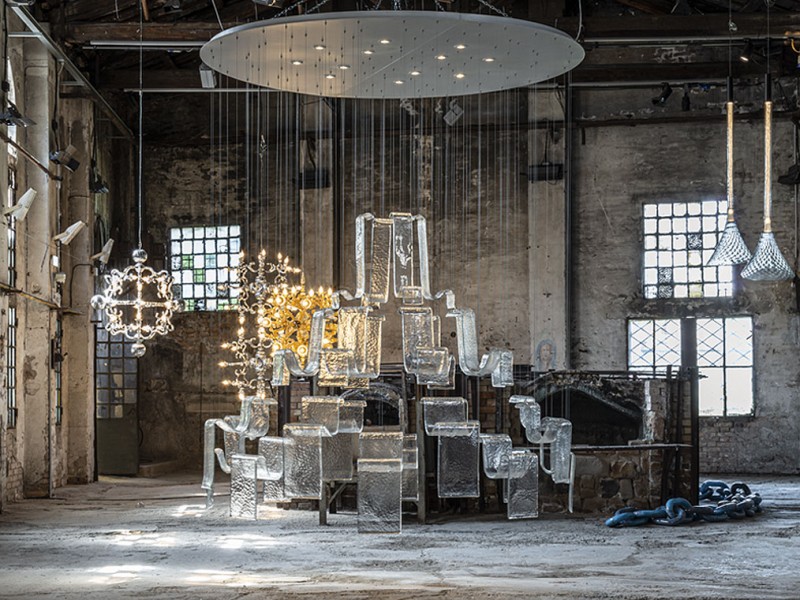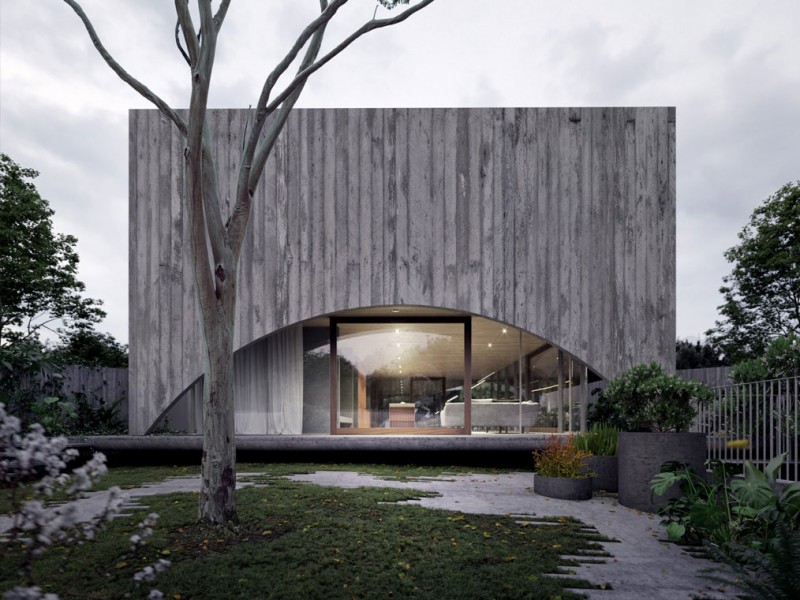From 3D-printed corals and modular underwater reef structures, to robotically printed and knitted architecture, Sampling the Future, a new exhibition at The Ian Potter Centre: NGV Australia, reveals some of the extraordinary ways that advanced technologies and manufacturing are shaping our near and distant futures.
Sampling the Future showcases new work by leading experimental and speculative designers whose practices bridge the worlds of design, technology, science and philosophy in order to reimagine how and why objects, structures and buildings are designed and made. These include speculative architects Roland Snooks and Leanne Zilka, Alice Springs-based designer Elliat Rich, Sydney-based duo Kyoko Hashimoto and Guy Keulemans, and Melbourne duo Georgia Nowak and Eugene Peripletchikov, among others.
Divided into two thematic sections – the near future and the distant future – the exhibition features large- scale architectural installations, thought-provoking design objects, as well as film and sound-based works. Designers exploring the ‘near future’ present works that combat climate change, biodiversity loss and pollution, while those exploring the ‘distant future’ draw on history, mythology and philosophy to explore our relationship to and reliance on natural resources, as well as the central role that materials have played in shaping the tools and artefacts of human civilisation.
Comprising a selection of works from the NGV Collection alongside new never-before-seen projects, the exhibition features a new major room-sized commission from Alex Goad and his Reef Design Lab. Mitigating the increasing effects of human activity on marine ecosystems, Goad’s 3D-printed modular system is designed for constructing reef habitats in tropical and temperate waters without the need for heavy-duty equipment. While providing protection for smaller fish species, the reconfigurable structure is also designed to support coral and filter feeding species such as oysters and mussels.
Unclear Cloud, 2021, a newly commissioned work of speculative architecture by Roland Snooks, Associate Professor at RMIT University with fellow RMIT academic and sound artist Philip Samartzis, is also on display. Using advance computation, 3D-printing and robot fabrication, Unclear Cloud attempts to realise an architectural representation of the ‘virtual’ cloud in order to draw attention to the environmental impact of cloud computing and its massive energy requirements. The work is embedded with a sound work by Samartzis, which comprises recordings of climatic research activity, weather and melting glaciers in the Bernese Alps. The sound work also asks audiences to consider the accelerating data-carbon footprint of architecture and design.
Also on display is a series of mirrors by Elliat Rich with an accompanying sound work created by Bree van Reyk, which offer a glimpse into a future or parallel world where Western and non-Western knowledge systems have converged and found equilibrium. Looking into the mirrors is intended as a ritual of self- reflection and an opportunity to connect to a world that is beyond the here and now. The mirrors are accompanied by an original mythology that tells the story of ‘the Weaver’, who offers humanity the chance to ‘reweave’ themselves into one of the trillions of ‘patterns’ that make up the living world.
Aurum, 2020, by Georgia Nowak and Eugene Perepletchikov, is a film-based work that explores gold as a symbol of power and wealth. The film juxtaposes extraction and production processes of gold against historical narratives and mythologies, revealing the power of gold to transform societies. According to the artists, the demand for gold continues to rise as it is essential in the manufacture of electronics and, in uncertain times, it is increasingly attractive to investors as a safe haven.
Tony Ellwood AM, Director of the National Gallery of Victoria, said: ‘Through the work of leading designers and architects, this exhibition gives audiences an exciting glimpse our many possible futures – both real and imagined. The designers in this exhibition are using their ideas and skills to create objects, environments and images that expand our understanding of design, as well as to raise philosophical questions about how people in a distant future might make sense of today.’
For more visit: ngv.vic.gov.au
Related Features
-
963
-
-
-

